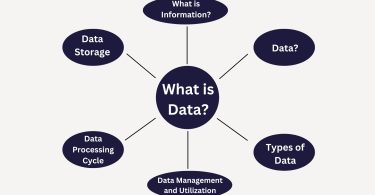It is one of the most popular programming languages in the world due to its simplicity and ease of use, it also has a number of features that are not so well known. These features can make your code faster, more beautiful and just plain cooler.
So, without further excitement, let’s explore some of the hidden gems of the Python programming language!
Mighty Underscore (_)
The underscore (_) is a versatile character in Python, serving multiple purposes. It can be used as…
Throwaway Variable: If you come across a value in the repetition but do not require it to be stored, use _ as a placeholder. This makes your code less cluttered and keeps your namespace free from unnecessary items.
Wildcard Import: There are times when it may be necessary to import all functions from a module. Import from a module, but use this carefully to avoid the creation of duplicate names.
Unpacking: When unpacking a sequence into variables, use _ to ignore some of the values. This is especially useful when you want to loop through the keys and values of a hash and get only the keys or the values.
Ellipsis (…) for Open-Ended Functionality
The ellipsis (…) is not just a device to indicate that someone has stopped mid-sentence. In Python, it serves multiple purposes like:
Slicing: To create a full slice of an object, use x(…). g. It can be a list or string. This is a short way to clone an object or loop through all the elements.
Variable-Length Argument Lists: When defining functions, use args or *kwargs to allow for a variable number of arguments. This enables the function calls to be flexible.
Placeholder in Expressions: Ellipsis may be used in some expressions to mean that more code may be added in the future if necessary.
The Walrus Operator (:=)
This is a relatively recent feature (added in Python 3. 8) that makes assignment expressions easier. You can use x. It serves as an operator that assigns the value of an expression to a variable in a single line. This is particularly useful when using conditional statements or when evaluating right-hand side expressions that are complicated.
List Comprehensions and Generator Expressions
These powerful tools help you to define lists or generators in a clear and compact manner. List comprehensions are written inside square brackets ([]) and a loop to produce elements, while generator expressions are written inside parentheses () and use the yield statement to create generators that are memory efficient. Learning these will make your code significantly shorter and easier to read.
Function Objects are First-Class Citizens
As with other languages, functions are objects in Python, and this is true for the programming language at all levels. This means you can treat functions like any other data type.
Assign Functions to Variables: Store functions in variables and then pass them as advices to other functions.
Return Functions from Functions: Functions can return other functions, which can be used to create a powerful concept of higher-order functions.
Decorators
Decorators are a form of metaprogramming that enables the alteration of the functionality of functions or classes at runtime. Decorators allow you to wrap another function in order to extend the behavior of the latter. Such as adding logging, caching or authentication before or after the function call.
Built-in itertools Module
This module is an indispensable tool for working with iterable objects, as it contains many useful functions. Talk over other functions such as chain, cycle, groupby, and islice to create efficient iterators for different applications.
Context Managers
The with statement is used to work with resources that need proper initialization and cleanup. It makes sure that resources are properly closed or freed even if there are exceptions that happen. This is typically used for file operations, database connections and various forms of locking.
importlib for Dynamic Imports
Ever wondered how to load modules at runtime based on user input or any other condition? This can be done with the help of importlib module which contains functions like import_module().
enum Module
Enumerations are defined in the enum module to provide a way of defining sets of named constants along with values. This makes the code easier to read and modify compared to using raw integer values in the code.
Last Words
These hidden features are just a peek into the vast possibilities of the programming language. Through studying and practicing them, you can level up your coding abilities, produce more concise and attractive code, and open new doors to your Python applications. Well, this is Python and it never ceases to astonish, so continue learning and continue coding.



